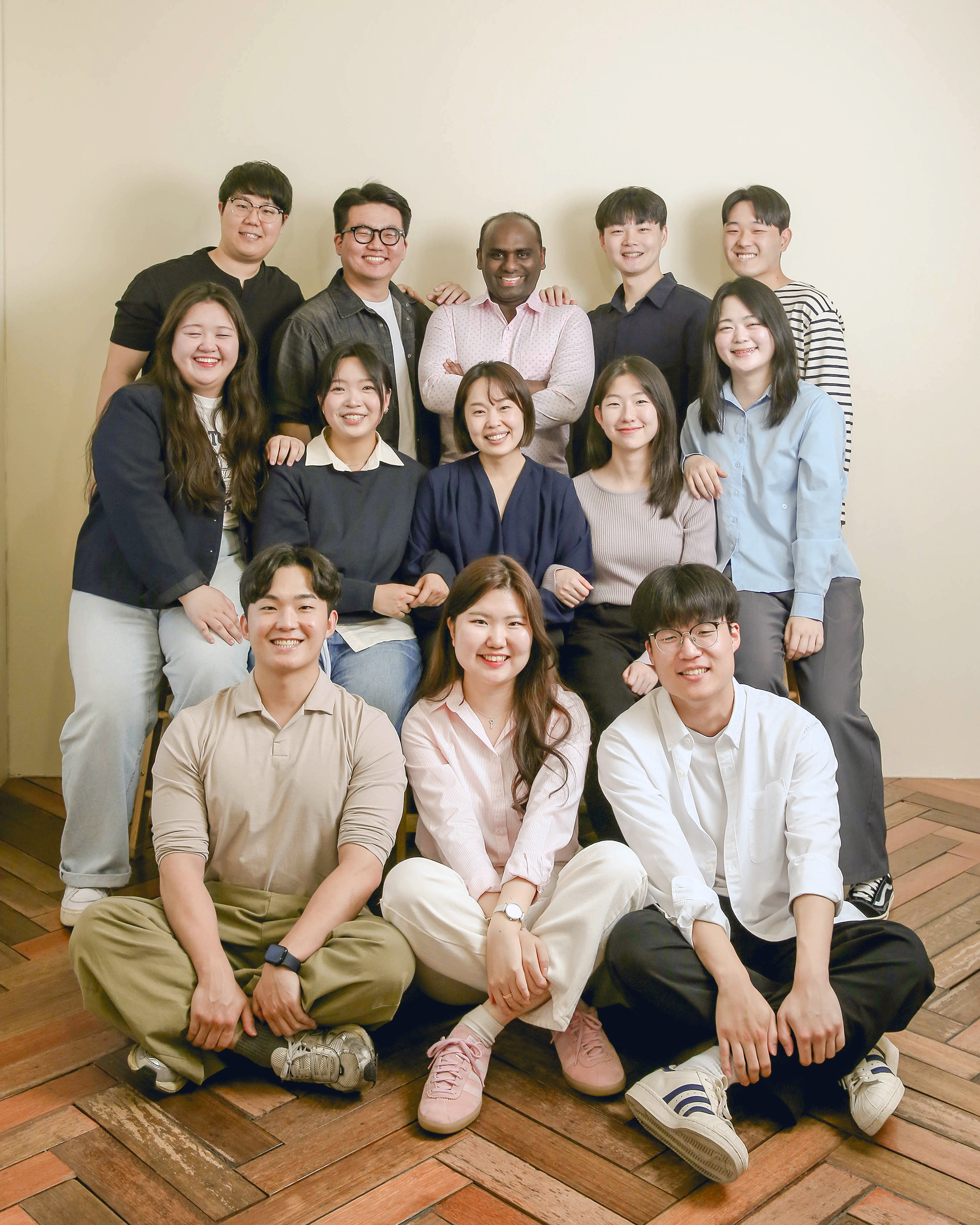커뮤니티
부경투데이
- 국립 부경대학교의 다양한 모습과 소식을 접하시면 부경대학교가 한번 더 가까워집니다.
| '10억' 반도체 글로벌 팹 사업 선정(Selection of ‘1 Billion Won’ Global Semiconductor Fab Project) | |||
| 작성자 | 대외협력과 | 작성일 | 2024-08-22 |
| 조회수 | 518 | ||
| '10억' 반도체 글로벌 팹 사업 선정(Selection of ‘1 Billion Won’ Global Semiconductor Fab Project) | |||||
 |
대외협력과 |  |
2024-08-22 |  |
518 |
국립부경대, 신약 개발용 나노반도체 원천기술 개발한다
- 임효령 교수팀, ‘반도체 글로벌 첨단 팹 연계 활용사업’ 선정

△ 임효령 교수(가운데) 연구팀 사진.
국립부경대학교(총장 장영수)가 나노반도체 기술을 이용해 최근 주목받는 오가노이드칩(Organ-on-a-chip) 개발에 나선다.
국립부경대는 임효령 교수(휴먼바이오융합전공) 연구팀이 과학기술정보통신부의 ‘2024년 반도체 글로벌 첨단 팹 연계 활용사업’에 선정됐다고 밝혔다.
이 사업은 나노반도체 및 응용분야 선도기술을 보유한 국내·외 연구기관과 한·미 반도체 첨단 인프라 기관인 나노종합기술원(National Nanofab Center)과 NY Creates 간 협력을 통해 나노반도체 분야 원천기술 개발을 위한 국제공동연구를 지원하는 사업이다.
임효령 교수팀은 사업비 10억 원을 지원받아 ‘반도체 기반 500 nm 급 다중 나노센서를 이용한 오가노이드 평가용 칩 개발’ 과제를 주관한다. 해외 공동연구기관으로 Harvard Medical School-Brigham and Women’s Hospital의 신수련 교수팀이 참여하고, 용역연구기관으로 국립부경대 용당캠퍼스 소재 ㈜마라나노텍의 이혜연 대표팀이 참여한다. 이 연구는 뛰어난 신진·중견 여성 연구자들이 협력해 반도체 공정 기반의 나노바이오센서를 국가 첨단 전략 기술 분야에 응용하고, 사업화 비전을 제시하는 것이 목표다.
생체조직칩을 뜻하는 오가노이드칩은 반도체 미세 가공기법을 사용한 칩 위에 인공 장기를 배양해 체내 장기의 물리적·생리적 환경 분석 및 질병 모델링이 가능해서 신약 개발 분야의 중요한 기술로 주목받고 있다.
오가노이드칩 기술을 활용하면 질병의 조기 진단과 치료를 비롯해 신약 개발 비용과 시간 절감, 동물 실험에 대한 의존도를 줄여 동물 복지 향상, 생명과학 및 첨단 제조 분야의 새로운 시장 개척 등 다양한 가능성이 기대되고 있다.
연구팀은 이번 사업으로 약물 반응 조건과 시간에 따른 다양하고 정확한 분석을 위해 실시간, 다중 검증이 가능한 오가노이드 평가용 칩을 개발할 계획이다. 사업 첫해인 올해는 나노센서-미세유체칩 시스템 개발을 시작으로 2년 차에는 고정밀 평가 기술개발, 3년 차에는 나노센서와 미세유체칩이 통합된 시제품 개발 및 3차원 심장 조직의 다중 평가 기술을 개발한다.
임효령 교수는 “이번 연구로 나노센서와 미세유체칩을 통합해 심장 오가노이드 등의 복잡한 생체 반응을 정밀하게 모니터링하고 분석할 수 있는 기술을 개발함으로써 장기적으로 생체 모사 기술 발전을 촉진하고, 정밀한 질병 모델링 및 치료법 개발에 기여하기 위해 힘쓰겠다.”라고 밝혔다. <부경투데이>
Pukyong National University Develops Core Technology for Nano-Semiconductors for New Drug Development
-Professor Lim Hyo-ryeong’s Team Selected for ‘Semiconductor Global Advanced Fab-Linked Utilization Project’
Pukyong National University(President Jang Young-soo) is embarking on the development of organoid chips (Organ-on-a-chip) that have recently garnered attention using nano-semiconductor technology.
Pukyong National University announced that Professor Lim Hyo-ryeong’s (Department of Human Bio-Convergence) research team has been selected for the ‘2024 Semiconductor Global Advanced Fab-Linked Utilization Project’ by the Ministry of Science and ICT.
This project supports international joint research for the development of core technologies in the nano-semiconductor field through collaboration with domestic and international research institutions possessing leading technologies in nano-semiconductors and their application areas, as well as with the Korea-U.S. semiconductor advanced infrastructure institutions, the National Nanofab Center and NY Creates.
This research aims to apply semiconductor process-based nano-biosensors to the field of national advanced strategic technologies, collaborating with outstanding early- to mid-career female researchers and presenting a commercialization vision.
Organoid chips, which refer to bio-organ chips, cultivate artificial organs on chips using semiconductor microfabrication techniques, enabling the analysis of the physical and physiological environments of in vivo organs and disease modeling, thus garnering attention as a crucial technology in the field of new drug development.
Utilizing organoid chip technology can enable early diagnosis and treatment of diseases, reduce costs and time in new drug development, and decrease reliance on animal testing, thereby improving animal welfare and exploring new markets in the fields of life sciences and advanced manufacturing, among various anticipated possibilities.
The research team plans to develop an organoid evaluation chip that enables real-time and multi-verification for diverse and accurate analysis of drug response conditions and timing through this project. In the first year of the project, this year, they will start with the development of a nano-sensor-microfluidic chip system, followed by high-precision evaluation technology development in the second year, and in the third year, they will develop a prototype that integrates the nano-sensor and microfluidic chip, as well as multi-evaluation technology for three-dimensional cardiac tissues.
Professor Lim Hyo-ryeong stated, “Through this research, I will strive to develop a technology that can precisely monitor and analyze complex biological responses, such as cardiac organoids, by integrating nano-sensors and microfluidic chips, thereby promoting the long-term advancement of biomimetic technology and contributing to the development of precise disease modeling and treatment methods.” <Pukyong Today>